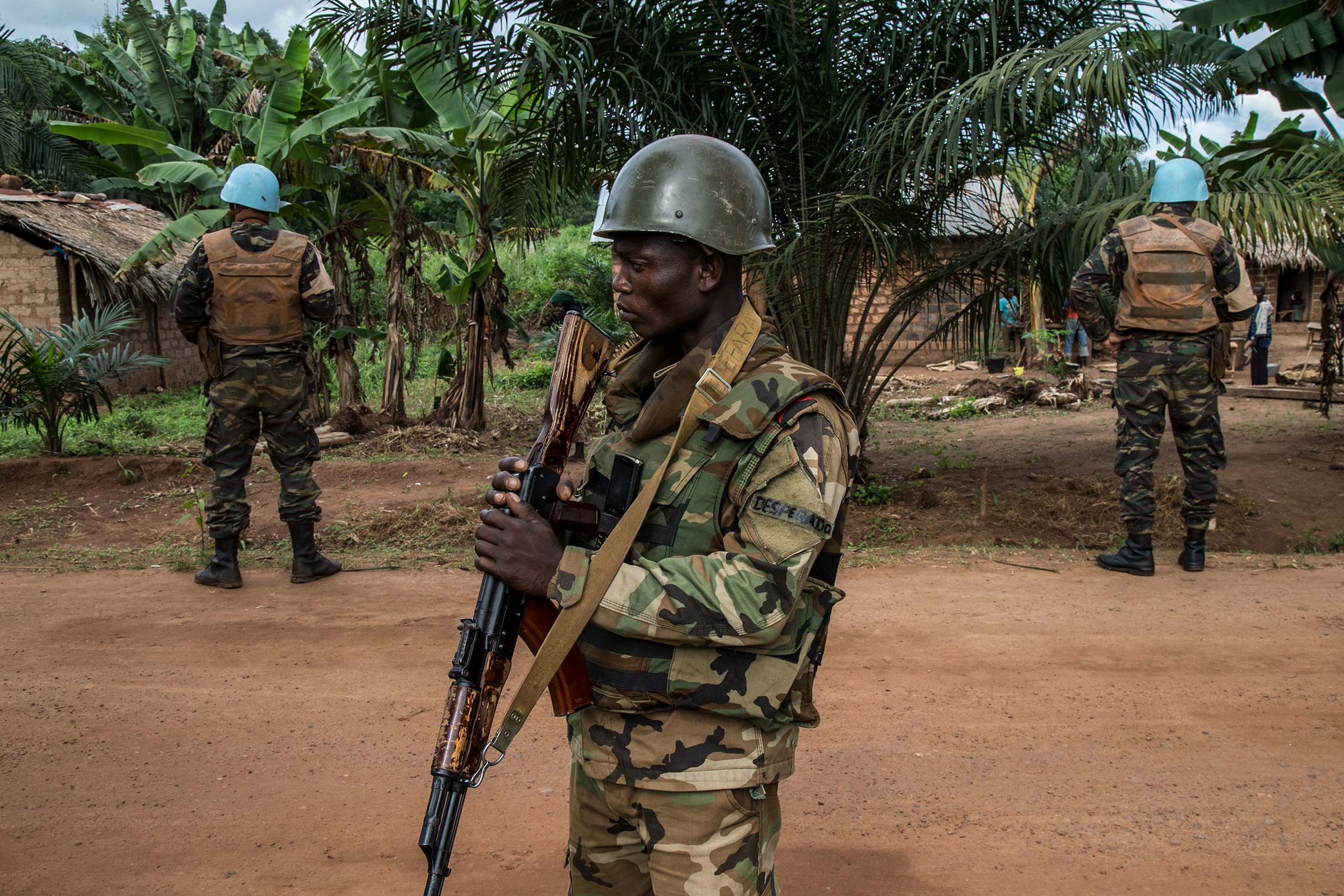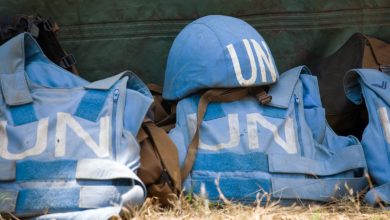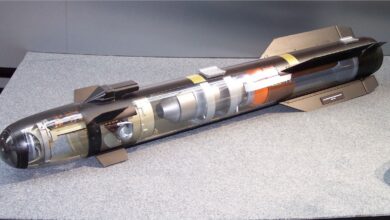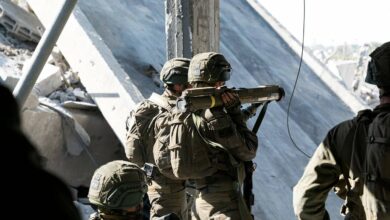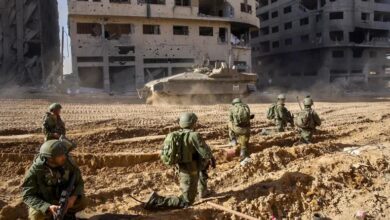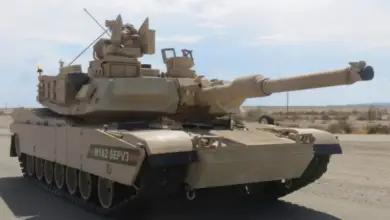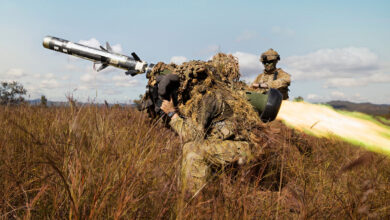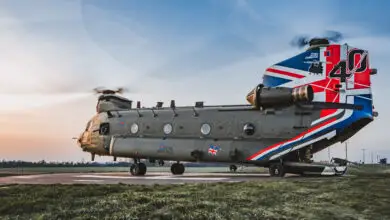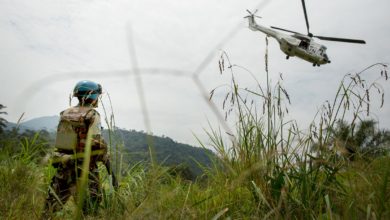The United Nations Security Council is set to open the door to an easing of the arms embargo on the Central African Republic, five years after the country stood on the verge of genocide.
The government has repeatedly called for the restrictions to be lifted to allow arms supplies to shore up its security forces fighting militias that control much of the country. Prime Minister Mathieu Simplice Sarandji led a rally of around 3,000 people on Monday calling for the arms embargo to be lifted.
The Security Council will vote on Thursday on a French-drafted resolution that calls for a review of the arms embargo by September if the Bangui government meets benchmarks in managing weapons, disarming militias and reforming its security sector, according to the text seen by AFP on Wednesday, January 30.
The draft resolution would renew the embargo until January 2020 but open the door to a partial lifting that would allow the government to purchase weapons without seeking approval from the U.N. sanctions committee.
U.N. Secretary-General Antonio Guterres will submit a report by the end of July on whether the government has met the benchmarks after CAR presents its own findings by June 30.
Following the assessment, UNSC will review the arms embargo measures on the CAR security forces by 30 September. #CARcrisis
— Hajer Naili (@H_NAILI) January 30, 2019
Diplomats said Wednesday they expect the measure to be adopted.
“We think it’s a good idea to have a review of the embargo,” Russian Ambassador Vassily Nebenzia told AFP.
Russia has stepped up its presence in the Central African Republic, training troops, brokering peace talks with militias, and providing security and advice to President Faustin-Archange Touadera, sparking tensions with France, the former colonial power.
In August, Russia signed a military cooperation agreement with CAR offering the possibility for Central African officers and NCOs to be trained in Russian military schools.
The European Union also trains Central African military personnel. In July, the bloc extended EUTM-RCA until 2020, pledging €25 million ($29 million) to help reform the country’s defense sector. The scope of the mission was also modified to give strategic advice to the president’s cabinet, interior ministry and police, as well as the military.
The U.N. sanctions committee has previously approved shipments of weapons. In December, France handed over 1,400 AK-47 assault rifles and three amphibious vehicles to the Central African Republic to shore up its beleaguered armed forces, and in 2017, the embargo was lifted to allow delivery of 1,700 Russian weapons for FACa.
France, Belgium, China and the U.S. have all recently supplied equipment for CAR’s military, but that equipment is understood not to include weaponry.
In June, France, the U.S. and the United Kingdom put a hold on a request from Central African Republic for U.N. Security Council approval of weapons shipments from China.
Parfait Onanga-Anyanga, the outgoing U.N. special envoy to the CAR, said in September that the need for weapons was “undeniable” as the Central African Republic government builds its armed forces, but urged transparency in the flow of arms.
“China, but also the United States, have proposed new quantities of weapons,” Onanga-Anyanga said. “It’s for a good reason.”
Russia’s Ambassador to CAR Sergey Lebanov said earlier in September that a second shipment of Russian arms and ammunition was “in preparation,” and would be delivered once approved by the Security Council.
Averting genocide
The U.N. arms embargo was imposed in 2013 when the country descended into violence after President Francois Bozize, a Christian, was overthrown by mainly Muslim Seleka rebels.
At the height of the bloodshed in 2013, France warned that the country was on the verge of a genocide with reports of atrocities committed by roaming militias.
In 2017, a similar warning came from then-U.N. aid chief Stephen O’Brien.
The vote at the council comes as the latest round of peace talks between the government and armed militias stumbled in Khartoum over demands for an amnesty for rebels.
It is the the eighth bid in six years to agree a lasting peace. The last attempt, in 2017, was forged with the help of the Catholic Church, but fighting resumed within a day, leaving 100 dead.
The Sudan-hosted talks which opened last week are expected to continue for up to three weeks.
The draft resolution also renews the mandate of a panel of experts who reported to the council last month that fighters of the former Seleka alliance had received fresh weapons supplies from traffickers in Sudan.
The militia groups are re-arming to counter the deployment of the newly trained and equipped government troops to their areas of influence, the panel’s report said.
Despite reserves of diamonds, gold, uranium, copper and iron, Central African Republic remains one of the world’s poorest countries.
Fighting broke out between the Seleka, a coalition of mainly Muslim rebel groups, and the mainly Christian anti-balaka militia in 2012. A peace deal was singed in January 2013, but Seleka rebels captured the capital Bangui that March and ousted President Francois Bozize.
Seleka was officially disbanded within months, but many fighters refused to disarm, becoming known as ex-Seleka. Many others joined the anti-balaka militia to fight the Seleka, leading to a spiral of violence between groups along religious and ethnic lines.
By the end of 2014, CAR was de facto partitioned – anti-balaka in the southwest and ex-Seleka in the northeast.
Elected in 2016, Touadera’s weak government controls around a fifth of the country and relies heavily on the U.N. peacekeeping mission, Minusca, for support. The rest is controlled by at least 14 different militia groups who often fight each other for revenue from extortion, roadblocks or mineral resources.
Violence since 2012 led to thousands of deaths. Nearly 700,000 people are displaced, 570,000 have fled the country and 2.9 million – 63 percent of the population – are in need of humanitarian aid, according to the U.N.
With reporting from AFP

